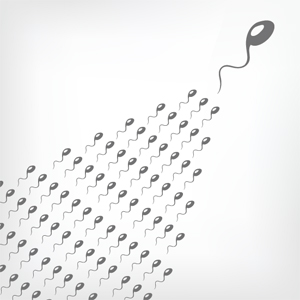Is there a role for a sexual health champion?
In Retail & Merchandising
Follow this topic
Bookmark
Record learning outcomes
The FPA is looking to community pharmacy to help clear up confusion around contraception and emergency contraception
Many women believe that emergency contraception is only effective in the first 12 or 24  hours following an episode of unprotected sexual intercourse and this needs to be challenged, experts say. Next month FPA, the sexual health charity, is running Sexual Health Week (15-21 September), with the theme of 'emergency contraception and subsequent contraceptive choices'. The tagline for the campaign is 'The truth about the morning after', looking to challenge this, and other misconceptions.
hours following an episode of unprotected sexual intercourse and this needs to be challenged, experts say. Next month FPA, the sexual health charity, is running Sexual Health Week (15-21 September), with the theme of 'emergency contraception and subsequent contraceptive choices'. The tagline for the campaign is 'The truth about the morning after', looking to challenge this, and other misconceptions.
Natika Halil, FPA's director of health and wellbeing, hopes that community pharmacy will be key to communicating the message. 'Pharmacists may find themselves being asked a whole range of questions about emergency hormonal contraception €“ how it works, what its effects may be or whether or not it is the same physical process as an early medical abortion. Other sources of common confusion include suitability when breastfeeding, how often it can be taken in a menstrual cycle and whether or not you need a prescription.'
Areas for advice
Sexual health advice can be a tricky area for pharmacists to advise on, and one where women may be embarrassed to ask.
'Through various studies women have talked about the feelings of shame and embarrassment that they can experience when accessing emergency contraception €“ and stories of feeling judged in a pharmacy setting are not uncommon.'
The advice that pharmacies can give is always crucial for women's health and wellbeing, she says. 'At FPA we are very clear that a woman accessing emergency contraception to avoid a pregnancy is a responsible act and professionals involved in that process must do all they can to ensure women do not feel like they are being stigmatised.
There is potential for every pharmacy to have a sexual health champion, she suggests.
'Pharmacies are an increasingly important resource where people want to get advice and information about their sexual health, especially as more emergency contraceptive choices become available over the counter. In an ideal world, pharmacists will become sexual health champions €“ linking in with existing services in their area and staying up to date on sexual health and contraceptive developments. This is particularly important as new guidance is issued on emergency contraception, for example the link with body mass index €“ the media's treatment of such stories often results in more confusion among women and more questions for professionals.
Debate in the media has centred around whether or not emergency contraception is effective for women who are overweight.
'There is also an opportunity to capitalise on the fact that pharmacies are often the favoured source of emergency contraception for women because of factors including more convenient locations and opening hours, adds Ms Halil.
Pharmacists should make sure that they are confident with the advice to give around contraception for particular circumstances.
'Not all pharmacists feel confident about explaining the oft-overlooked option of an emergency IUD. Although not able to fit the IUD themselves, it is important for pharmacists, as with professionals in any other sexual health setting, to be able to give correct information and signpost services where necessary.'
FPA has information on emergency contraception and contraceptive choices, as well as a range of other contraception and STD publications available from its website.
- FPA is producing a pack for Sexual Health Week, with the latest in guidance and advice on emergency contraception and contraceptive choices. Visit: www.fpa.org.uk/sexual-health- week/sexual-health-week-2014
Tips For pharmacies
FPA's Natika Halil suggests the following ways to get the most impact for an emergency contraception service:
- Advertise the fact that women coming into the pharmacy can have a private, judgement-free conversation with a pharmacist to discuss their emergency contraception and wider contraceptive needs €“ a poster is good for this
- Back this up with all staff in the pharmacy equipped with the communication skills to deliver a friendly, easily accessible service where women do not feel embarrassment or shame
If you do not offer emergency contraceptive services, ensure customers are aware of the nearest place that does - Be prepared for questions from customers who challenge the way emergency hormonal contraception works and be able to answer them patiently and reassuringly. Remember, some people will have grown up with high-quality information about sexual health, but others will not. Be prepared to go back to basics
- As well as offering verbal information, offer patient information leaflets
- Accessing emergency contraception is an ideal opportunity to discuss wider contraceptive and sexual health needs €“ remember customers of varying ages and backgrounds will have different needs: older people who might not have been exposed to sexual health messaging, young people and the associated issues of safeguarding and limits of confidentiality.
